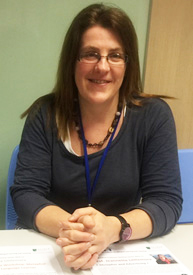Prof Jeannette Littlemore

Seminar 1
TOPIC:
What can metaphor tell us about the different ways in which people view the world?
TIME:
27 October 2018 11:30 - 12:30
VENUE:
Lu Sin Lecture Theatre (D0309), 3/F, Block D, Jockey Club Campus, OUHK
ABSTRACT:
Figurative language (in particular metaphor) is used in all forms of communication in a wide variety of contexts, ranging from informal conversations to news articles, advertisements, educational interchange, expert discourse, business correspondence, policy documents, doctor/patient exchanges, government communication, legal settings, and industry/client interaction. The reason for this is that metaphor is one of the primary tools for achieving economy of expression, clarity, persuasiveness, politeness, communication of evaluations and emotions, and other ends. It can also tell us about the different ways in which people understand and make sense of the world.
In this talk, I outline a number of studies that I, along with my colleagues, have conducted investigating how figurative language (particularly metaphor) is used by different groups of people in different situations. I show how, by studying the ways in which metaphor use varies according to the individual and the context in which they are using it, we gain insights into very different world views. I focus on variation in gender, workplace, mindset and mental state. Findings from these studies shed light on the nature and the power of metaphorical language and thought, and they tell us more about what it means to be ‘non-literal’. They also have implications for the provision of support for people who have experienced difficult and traumatic episodes, where non-literal language is used to discuss and comes to terms with experiences that cannot be expressed using ‘ordinary’ language.
LANGUAGE:
English
REGISTRATION:
Seminar 2
TOPIC:
Idioms and the body: How the two connect
TIME:
17:00 - 18:00
VENUE:
30 October 2018 B0614, 6/F, Block B, Main Campus, OUHK
ABSTRACT:
Much idiomatic language is based on the body. For example, in English, we talk about ‘keeping an eye on things’, if we want to make sure they are going to work well, when we are suspicious, we might ‘smell a rat’ and when we like something we get a ‘taste’ for it, even if it is not food. I this talk, I look at the role played by the body in understanding expressions such as these and discuss some interesting research whose findings suggest that it plays a bigger role than we think.
LANGUAGE:
English
REGISTRATION:
Seminar 3
TOPIC:
The role of figurative language in advertising
TIME:
31 October 2018 14:00 - 15:30
VENUE:
B0614, 6/F, Block B, Main Campus, OUHK
ABSTRACT:
Figurative language often fulfils an important evaluative function. For this reason it is often used in advertising, where positive evaluations are very important. In this seminar, I discuss the role played by figurative language in advertising, looking at how metaphor works in combination with other kinds of figurative language, to maximise the effectiveness of advertisements. I also look at how responses to figurative language in advertisements vary across cultures. I discuss the implications of these findings for the use of advertising in international markets.
LANGUAGE:
English
 2018 International Conference on Bilingual Learning and Teaching
2018 International Conference on Bilingual Learning and Teaching